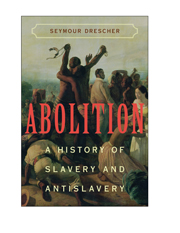2 - Expanding Slavery
Published online by Cambridge University Press: 04 August 2010
Summary
On the eve of the Reformation in 1516, the future father of the Baptist movement traveled through Italy. Like Martin Luther, Andreas Karlstadt was dismayed by much of what he saw. In Rome, he encountered one institution, however, that did not seem to catch the attention of his fellow German clergyman – the buying and selling of slaves:
Now hear how this kind of sale occurs. It used to be that people could sell one another, and allow their body to be owned by the buyer. And the buyer could again sell his bought servant to another, just like somebody who sells an ox allows the buyer to possess the body. Even nowadays this is not uncommon or strange in Naples or Rome. Such people are sold together with their children and are called servants.
Karlstadt's response to slave markets in 1516 was indicative of distance, as well as disapproval. He encountered an institution that was both existentially strange and biblically familiar. “Of such servants our text speaks,” he mused. He invoked Deuteronomy, 15:11–12, calling upon sellers of humans to leave servants untrammeled and free. Nor were they at liberty to reclaim them later for servitude. “For then they anger God and besmirch the covenant and the name of God. …” Luther might well have responded to Karlstadt, as he did to the peasants' demands for freedom a decade later, by appealing to the example of the patriarchs or to other verses in Deuteronomy.
- Type
- Chapter
- Information
- AbolitionA History of Slavery and Antislavery, pp. 26 - 59Publisher: Cambridge University PressPrint publication year: 2009



